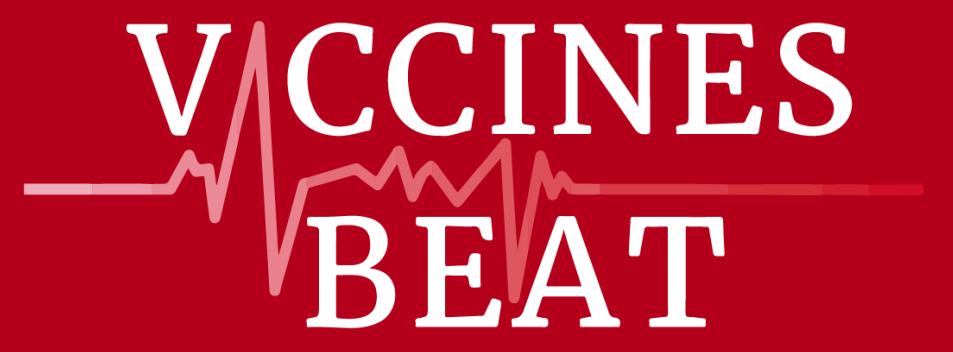Rolando Ulloa-Gutierrez, MD. Servicio de Aislamiento, Hospital Nacional de Niños “Dr. Carlos Sáenz Herrera”, Caja Costarricense de Seguro Social (CCSS). Member, Academia Nacional de Medicina de Costa Rica (ACANAMED). San José, Costa Rica. rolandoug@gmail.com https://orcid.org/0000-0002-9157-9227
Pediatric vaccination against SARS-CoV2 infection and COVID-19 has shown worldwide multiple benefits, including disease prevention, transmission, complications, hospitalizations, associated-health care costs, and long-term sequelae. In the post-pandemic era, prevention of Multisystem Inflammatory Syndrome (MIS-C) and Long COVID are still one of the most important reasons to vaccinate children.
MIS-C is a complication and life-threatening condition occurring approximately four weeks after SARS-CoV2 infection in children and adolescents, and less commonly in adults.1,2 This inflammatory condition, clinically resembles Kawasaki Disease (KD) and most of its associated complications are cardiovascular, including myocardial dysfunction and cardiogenic shock. Treatment options include intravenous immunoglobulin (IVIG), steroids, and other immunomodulatory agents.3-5 Overall, severe disease and mortality rates are higher in children from developing versus developed countries.6 Long-term impact and sequelae can range from mild to severe,7 therefore studies involving big number of patients or multicenter/multinational studies.
REKAMLATINA (Red de Enfermedad de Kawasaki en América Latina) is a multinational multicenter research network that was established in June 2013 to study the epidemiology of KD among hospitalized children at the main pediatric or referral centers in Latin America, where most children with KD are treated.8,9 This large network is integrated by pediatricians, pediatric infectious disease, cardiology, rheumatology, immunology, allergology, emergency and critical care subspecialists. After MIS-C was initially described in Europe, we started to collect retrospective and prospective information of children presenting with MIS-C at our REKAMLATINA hospitals, supported by our multi-specialty expertise.10 We analyzed information obtained during 3 years from children admitted at 87 participant hospitals from 16 countries in Latin America.
In the general epidemiologic study of MIS-C in our region,11 we reported 1,239 children with MIS-C at 16 countries from August 2020 to June 2022. In this study, we found that the mean duration of fever was 5 days at the time of diagnosis which implies a late recognition, based on the classic WHO and CDC definitions of MIS-C. Of concern, 589 (47.5%) patients required admission to an intensive care unit. The overall death rate in this study was 4.88%, which is higher when compared to developed countries. Specifically, a fatality rate of 3,39% was seen for those initially diagnosed with MIS-C but increased to 8.85% for those children whose diagnosis at admission was not MIS-C.
From that cohort study,11 subsequent specific analysis have been made and published.12-15 In a sub analysis of that cohort, 590 (48%) of patients with MIS-C required admission to an intensive care unit,12 and the case fatality rate was 4.8%, which is almost five times higher than that reported in North America and Europe. These children had more myocardial dysfunction (20% versus 4%), 83.4% required vasoactive drugs and 43.4% mechanical ventilation. We found that children over six years of age, with shock, seizures and more inflammation, were at higher risk of PICU admission. In another sub analysis of MIS-C patients, we found that 17,1% developed Macrophage Activation Syndrome (MAS),13 which itself has significant morbidity and mortality rates. Not surprisingly, the combination of both entities increases the rate of complications and deaths. We found that MAS in MIS-C patients increases the fatality rate to 12%.
In another study looking at social health determinants in our MIS-cohort,14 we found that food insecurity, larger distance from a health center, not owning a car to transport the child to a hospital, payment by other means, or having a home in poor condition were associated with decreased left ventricular ejection fraction, shock, transfusion, and need for respiratory support. This is another example of the importance of COVID vaccination in children to prevent these complications. Finally, in a very novel study, we published the largest study on machine learning models through early, easily obtainable clinical parameters to predict multiple adverse outcomes in children with MIS-C and made them available for routine use through a web-based real-time application.15 This model can help the clinician risk stratify MIS-C patients, providing personalized care that could improve patient outcomes.
Our Latin American experience as well as that from other latitudes show how severe MIS-C can be in children, highlighting the importance to vaccinate them to prevent this life-threatening condition. Soon after COVID vaccines were available, we showed in an international study that in children who had a previous MIS-C episode it was safe to immunize them with COVID vaccines.16 In a recent publication, it was shown that children vaccinated against COVID, do not have higher risk to develop Kawasaki disease or MIS-C.17 Instead, the beneficial impact of vaccination to prevent hospitalizations due to MIS-C, as well as associated complications including deaths, has been show in both multicenter and multinational studies.18-22
REFERENCES
Jiang L, Tang K, Levin M, et al. COVID-19 and multisystem inflammatory syndrome in children and adolescents. Lancet Infect Dis. 2020; 20(11):e276-e288. https://doi.org/10.1016/S1473-3099(20)30651-4
Melgar M, Abrams JY, Godfred-Cato S, et al. Multicenter retrospective cohort study to characterize patients hospitalized with Multisystem Inflammatory Syndrome in Adults and coronavirus disease 2019 in the United States, 2020-2021. Clin Infect Dis. 2023;77(10):1395-1405. https://doi.org/10.1093/cid/ciad374
Henderson LA, Canna SW, Friedman KG, et al. American College of Rheumatology clinical guidance for Multisystem Inflammatory Syndrome in Children associated with SARS-CoV-2 and hyperinflammation in pediatric COVID-19: Version 3. Arthritis Rheumatol. 2022; 74(4):e1-e20. https://doi.org/10.1002/art.42062
McArdle AJ, Vito O, Patel H, et al. Treatment of Multisystem Inflammatory Syndrome in children. N Engl J Med. 2021; 385(1):11-22. https://doi.org/10.1056/nejmoa2102968
Channon-Wells S, Vito O, McArdle AJ, et al. Immunoglobulin, glucocorticoid, or combination therapy for multisystem inflammatory syndrome in children: a propensity-weighted cohort study. Lancet Rheumatol. 2023; 5(4):e184-e199. https://doi.org/10.1016/s2665-9913(23)00029-2
Merckx J, Cooke S, El Tal T, et al. Predictors of severe illness in children with multisystem inflammatory syndrome after SARS-CoV-2 infection: a multicentre cohort study. CMAJ. 2022;194(14):E513-E523. https://doi.org/10.1503/cmaj.210873
Rollins CK, Wypij D, Zambrano LD, et al. Neurologic and psychological outcomes 2 years after Multisystem Inflammatory Syndrome in Children. JAMA Netw Open. 2025;8(6):e2512487. https://doi.org/10.1001/jamanetworkopen.2025.12487
González-Mata A, Ulloa-Gutiérrez R, Brea J, Soza G, Tremoulet AH. Origin and importance of the Latin American Kawasaki Disease Network (REKAMLATINA). Rev Chilena Infectol. 2014; 31(3):330-2. https://doi.org/10.4067/s0716-10182014000300012
Ulloa-Gutierrez R, Salgado AP, Tremoulet AH. Kawasaki disease in Latin American children: Past, current, and future challenges. J Pediatric Infect Dis Soc. 2014; 3(4):280-1. https://doi.org/10.1093/jpids/piu105
Ulloa-Gutierrez R, Ivankovich-Escoto G, Yock-Corrales A, Tremoulet AH. Multisystem Inflammatory Syndrome surveillance and COVID-19 in Latin America. Pediatr Infect Dis J. 2020; 39(12):e473-e474. https://doi.org/10.1097/inf.0000000000002901
García-Silva J, Ulloa-Gutierrez R, Ivankovich-Escoto G, et al. Multisystem inflammatory syndrome in children across 16 Latin American countries: A multicenter study from the REKAMLATINA Network. IJID Reg. 2024;12:100419. https://doi.org/10.1016/j.ijregi.2024.100419
Fernández-Sarmiento J, Acevedo L, Niño-Serna LF, et al. Risk factors associated with intensive care admission in children with Severe Acute Respiratory Syndrome Coronavirus 2-related Multisystem Inflammatory Syndrome (MIS-C) in Latin America: A multicenter observational study of the REKAMLATINA network. J Intensive Care Med. 2024 Aug;39(8):785-793. dhttps://doi.org/10.1177/08850666241233189
Gámez-González LB, Murata C, García-Silva J, et al. Macrophage Activation Syndrome in MIS-C. Pediatrics. 2024;154(6):e2024066780. https://doi.org/10.1542/peds.2024-066780
Buonsenso D, Camporesi A, Sawaya C, et al. Impact of social determinants of health on the outcomes of Latin American children with Multisystem Inflammatory Syndrome (MIS-C). Pediatr Pulmonol. 2025;60(1):e27313. https://doi.org/10.1002/ppul.27313
Buonsenso D, Mastrantoni L, Ulloa-Gutierrez R, et al. Development and validation of multivariable machine-learning models for the prediction of Multisystemic Inflammatory Syndrome outcomes in Latin American children. Acta Paediatr. 2025. Epub ahead of print. https://doi.org/10.1111/apa.70290
Hoste L; MIS-C researchers; Soriano-Arandes A, et al. Severe Acute Respiratory Syndrome Coronavirus 2 vaccination in children with history of Multisystem Inflammatory Syndrome in children: An international survey. J Pediatr. 2022; 248:114-118. https://doi.org/10.1016/j.jpeds.2022.05.028
Kim S, Ko HY, Oh J, Yoon D, Kim JH, Choe YJ, Shin JY; CoVaSC Investigators. Risk of Kawasaki disease/Multisystem Inflammatory Syndrome following COVID-19 vaccination in Korean children: A self-controlled case series study. J Korean Med Sci. 2025; 40(3):e10. https://doi.org/10.3346/jkms.2025.40.e10
Buonsenso D, Perramon A, Català M, et al. Multisystem Inflammatory Syndrome in Children in western countries? Decreasing incidence as the pandemic progresses?: An observational multicenter international cross-sectional study. Pediatr Infect Dis J. 2022; 41(12):989-993. https://doi.org/10.1097/inf.0000000000003713
Villena R, Izquierdo G, Wilhelm J, et al. Dynamics of multisystem inflammatory syndrome in children associated to COVID-19 in Chile: Epidemiologic trends during pandemic, before and after children vaccination. Vaccine. 2024; 42(22):126015. https://doi.org/10.1016/j.vaccine.2024.05.063
Le Marchand C, Singson JRC, Clark A, et al. Multisystem inflammatory syndrome in children (MIS-C) cases by vaccination status in California. Vaccine. 2025;43(Pt 1):126499. https://doi.org/10.1016/j.vaccine.2024.126499
Zambrano LD, Newhams MM, Olson SM, et al. BNT162b2 mRNA vaccination against coronavirus disease 2019 is associated with a decreased likelihood of Multisystem Inflammatory Syndrome in children aged 5-18 years-United States, July 2021 – April 2022. Clin Infect Dis. 2023;76(3):e90-e100. https://doi.org/10.1093/cid/ciac637
Zambrano LD, Newhams MM, Olson SM, et al. Effectiveness of BNT162b2 (Pfizer-BioNTech) mRNA vaccination against Multisystem Inflammatory Syndrome in Children among persons aged 12-18 Years – United States, July-December 2021. MMWR Morb Mortal Wkly Rep. 2022;71(2):52-58. dohttps://doi.org/10.15585/mmwr.mm7102e1







